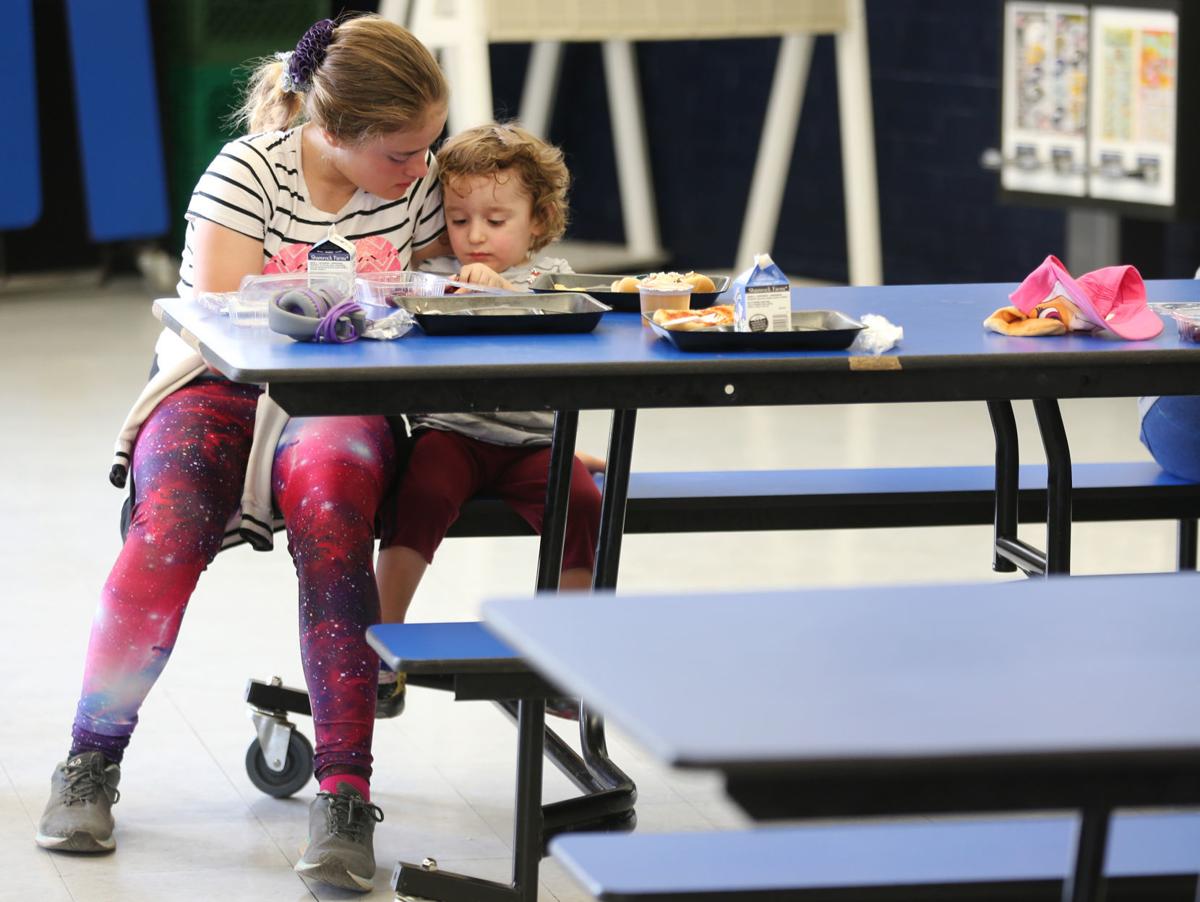Did you feel it?
A seismic shift rocked Arizona this week: Public school educators recognized their value, believed in their power and walked off the job and into the streets carrying signs, wearing red and publicly airing their economic desperation.
Take a minute and think about how dire the situation must be for teachers — people who have dedicated their lives to your children — to leave their classrooms, knowing that their students will be directly affected. All Tucson-area districts closed for classes Thursday and Friday, and many have announced they’ll be closed Monday, too.
Education is a woman-dominated field, especially at the teacher and support-staff level. For far too long teaching was one of the few career options for women, specifically single women. The pay was always low, because women’s work has always been undervalued. The cultural assumption was that men had to support a family, and a woman’s paycheck was a little something extra.
The proud legacy of women in education has left the dire economic consequence teachers live with today. I venture to say that if the teaching ranks had traditionally been filled with men, particularly in elementary schools, the “helping” adjective in “the helping professions,” like teaching, wouldn’t be synonymous for “underpaid.”
For far too long teachers have also worked against their own interests, not intentionally, but by mistakenly thinking their passion and dedication would be valued, and rewarded, by those in charge of the money.
I’ve covered education at the Star for 20 years, and I’ve spent many evenings sitting at school board meetings in districts all over Tucson.
Time and again, at budget time teachers would come before their school boards or lawmakers and ask for a raise. They would talk about the money they spent from their own pockets for pencils, paper, Kleenex, decorations, books and to copy worksheets. They’d spend so “their kids” wouldn’t have to go without the basics, even when that meant buying shoes and coats.
The teachers would make an excellent case for why they deserve a higher salary. They would talk about their work and their advanced degrees and certifications. They’d explain the subjects and lessons they taught, the progress “their kids” were making. They were proud of their work.
And then they’d say it: “This work is a calling for me. I’m passionate about teaching. I’m not in education for the money. I would probably do it even if you didn’t pay me.”
One message was intended: I love my job, and I deserve to be paid as a professional.
But lawmakers heard something else: I love my job, and I’ll keep doing it under these conditions and for this low pay, because I always have. You can keep taking advantage of my dedication.
This week, the teachers changed their message. It’s been a long time coming.
On Thursday morning, I went to visit Walter Douglas Elementary School in the Flowing Wells Unified School District. I’ve written about Walter Douglas Elementary before, and I read with first-graders there on Thursday mornings.
More than a dozen people gathered in the front office about 7:25 a.m., unsure of what the day would bring. Support staff were there, along with the principal, assistant principal, and a few teachers who came to help with whatever needed doing. The crossing guard stood across the street, at the ready. The people I spoke with said they support their colleagues, and they’re concerned about their students at the same time. It’s difficult.
Elementary schools across Flowing Wells were open for breakfast and lunch so students could come to the cafeteria even though no classes were in session. Several other districts did the same. The meals were available to anyone in the neighborhood under 18. Flowing Wells kids didn’t need to bring a parent with them.
On Thursday, eight students came to Walter Douglas for breakfast. More came to lunch, and more again on Friday.
One of the fifth-grade teachers had told her students that they could come eat breakfast with her, as a way to encourage them to come for the meal. Two took her up on it Thursday morning, one with his little brother in tow.
They were sitting at a table on the patio, debating the best Avenger superhero, when one of the boys drank some of his banana-blueberry smoothie and his straw turned orange. “Hey! Remember the lesson on densities we were doing this week?” the teacher asked. “He put orange juice in his smoothie and it’s at the bottom.”
We all looked at the two layers of liquid in the plastic cup. Density in action. Teachers are always teaching.
“Will the graham cracker float?” she asked. The boy dropped the cracker into the purple smoothie and hunched down to exam it at eye level. The light brown cracker kind of floated, but quickly got mushy and gross. Science experiment time was over.
It was nearing 8:15 a.m. and time for the kids to leave campus. They could come back for lunch.
On a normal morning, every adult who came to check on the kids as they ate their breakfast would be telling them to hurry and get to class.
But this wasn’t a normal morning.





